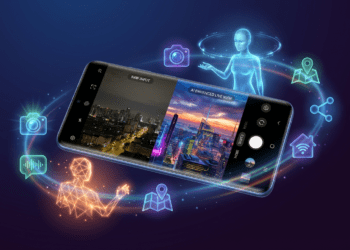
The digital landscape just shifted beneath our feet. OpenAI has launched a groundbreaking feature that transforms ChatGPT from a simple chatbot into a full-fledged app platform and the implications are massive. With apps from Spotify, Zillow, Canva, and others now running directly inside ChatGPT, we’re witnessing what could be the biggest shake-up in how we interact with technology since the smartphone revolution.
The Big Announcement That Changed Everything
On October 6, 2025, at OpenAI’s annual DevDay conference in San Francisco, CEO Sam Altman unveiled something that caught the tech world off guard. ChatGPT can now run third-party apps directly within its chat interface. No more jumping between different applications. No more opening separate tabs or switching contexts. Everything happens right where you’re already having a conversation.
“We want ChatGPT to be a great way for people to make progress, to be more productive, more inventive, to learn faster, to do whatever they’re trying to do in their lives better,” Altman explained during his keynote. “[Apps inside of ChatGPT] will enable a new generation of apps that are interactive, adaptive, and personalized, that you can chat with.”
The launch partners read like a who’s who of digital services: Booking.com, Expedia, Spotify, Figma, Coursera, Zillow, and Canva. These aren’t just simple integrations they’re fully interactive applications that respond to natural language and display rich interfaces right in your chat window.
How It Actually Works
Here’s where things get interesting. Instead of opening Spotify separately to create a playlist, you can simply type into ChatGPT: “Spotify, make a playlist for my party this Friday.” The app surfaces automatically, understands your context, and gets to work. The first time you use an app, ChatGPT prompts you to connect so you know what data might be shared.
ChatGPT can also suggest apps when they’re relevant to your conversation. Talking about buying a new home? The Zillow app might pop up as a suggestion, letting you browse listings that match your budget on an interactive map all without leaving the chat.
A demonstration of Zillow’s application showed users prompting ChatGPT in natural language to search for apartments in their area within a specific price range. ChatGPT then pulled up an interactive map showing options, and users could talk with ChatGPT to learn more about each one.
The magic lies in how these apps blend familiar interactive elements maps, playlists, presentations—with conversational interfaces. You can start with an outline and ask Canva to transform it into a slide deck, or take a course with Coursera and ask ChatGPT to elaborate on something in the video as you watch.
The Developer Opportunity
For developers, this represents a seismic shift. OpenAI is releasing the Apps SDK (Software Development Kit) in preview, built on the Model Context Protocol (MCP), an open standard that lets ChatGPT connect to external tools and data.
The distribution potential is staggering. With over 800 million weekly active users, ChatGPT offers developers immediate access to a massive audience. That’s more than half of Apple’s 1.5 billion iPhone users globally.
OpenAI has published documentation including design guidelines and an open-source repository of examples to help developers design experiences that blend interaction and conversation. Developers can use their own code to define the app’s interface and chat logic, and connect directly with their backend so existing customers can log in or access premium features.
Later this year, OpenAI will begin accepting app submissions for review and publication. The company has also promised to share details on monetization, including support for the new Agentic Commerce Protocol, an open standard that enables instant checkout in ChatGPT.
But Don’t Call It an App Store
Despite the obvious parallels, OpenAI is careful not to call this an app store. Nick Turley, OpenAI’s head of ChatGPT, explained the distinction during a press Q&A: “What you’re going to see over the next six months is an evolution of ChatGPT from an app that is really, really useful to something that’ll be a bit more like an operating system, where you can access different services, you can access software.”
The difference is philosophical as much as practical. Traditional app stores are destinations you go there to browse and download. ChatGPT’s app system is contextual apps appear when they’re relevant to what you’re already doing. It’s the difference between shopping for tools and having the right tool handed to you exactly when you need it.
The Apple Challenge

This launch puts OpenAI on a collision course with Apple, and the timing couldn’t be more interesting. Apple has been working on its own AI-powered vision for how we’ll interact with apps in the future one that centers on a dramatically improved Siri.
Apple’s plan is to kill the app icon without killing the app itself. At its developer conference last year, Apple introduced a vision where iPhone users would interact with an overhauled Siri and a revamped system that changes how you use apps on your phone. Imagine less tapping and more talking.
The company has some significant advantages. Apple already controls the hardware, the operating system, and has roughly 1.5 billion iPhone users globally. If Apple’s bet pays off, it could position the iPhone maker to not only maintain its app industry dominance but also modernize how we use apps in the AI era.
But Apple faces challenges. Siri has a terrible reputation to overcome. The new AI features are seriously delayed. And consumers have to wonder: will they keep using ChatGPT, or are they willing to give Siri another try?
The User Experience Question
ChatGPT’s app system isn’t without limitations. It requires consumers to engage in a chatbot-style interface to use their apps, which could require user education. To call up an app, you have to name it as the first word of your prompt or otherwise mention the app by name to get a button that prompts you to “use the app for the answer.”
Early tests by Bloomberg indicate that if you mess up your query, you could get stuck on a loading screen with no results. You can only interact with one app at a time, instead of being able to switch back and forth between apps something that could be useful when comparing prices or trying to decide between a hotel room and an Airbnb.
There’s also the setup friction. You have to install the app in question, then connect it to ChatGPT by jumping through a warning-filled permission screen. This process requires you to authenticate with the app using your existing username and password, and to enter the two-factor authentication code, if applicable.
Using apps within ChatGPT also strips away the branding, design, and identity that consumers associate with their favorite apps. For some, that’s a feature. For others, it’s a bug.
Privacy and Competition Concerns
Key questions around apps in ChatGPT revolve around privacy and how much data third-party developers will have access to. OpenAI says developers must “collect only the minimum data they need, and be transparent about permissions.” However, it’s unclear whether developers would have access to a user’s entire conversation with ChatGPT, the past few messages, or just the prompt that summoned up the app.
It’s also unclear how ChatGPT will choose a service between competing companies, such as DoorDash and Instacart. One could imagine how companies could pay to be surfaced in ChatGPT responses, but OpenAI says it plans to prioritize the user experience above all else.
OpenAI’s policies require that every app in ChatGPT must follow OpenAI’s usage policies, be appropriate for all audiences, and comply with partner rules for any third-party integrations. Later this year, the company will provide even more granular controls to decide what specific data categories each app can use to personalize results.
The Numbers Behind the Revolution
The scale of ChatGPT’s reach makes this launch particularly significant. ChatGPT processes over 2 billion queries per day, with users sending 2.5 billion prompts each day. The platform receives approximately 5.8 billion monthly visits, with the United States leading at 16.18% of users, followed by India at 8.71%.
The growth trajectory has been nothing short of explosive. ChatGPT reached 1 million users in just 5 days after launching in November 2022. By January 2023, it had hit 100 million monthly active users faster than TikTok (9 months) or Instagram (2.5 years).
What Comes Next
OpenAI has big plans for the future. Later this year, the company will launch apps to ChatGPT Business, Enterprise, and Edu. They’ll also open submissions so developers can publish their apps in ChatGPT, and launch a dedicated directory where users can browse and search for them.
Apps that meet the standards provided in OpenAI’s developer guidelines will be eligible to be listed, and those that meet higher design and functionality standards may be featured more prominently both in the directory and in conversations.
Additional partners are already lined up. In the coming weeks, apps from Target, DoorDash, Instacart, Uber, and Uber Eats will become available. For Uber Eats, ChatGPT will detect when a user wants to place an order, confirm details like delivery address, and then display nearby restaurant and menu options directly in ChatGPT.
The Bigger Picture
This isn’t just about apps. It’s about a fundamental shift in how we interact with technology. As one analysis put it, ChatGPT could become the new App Store a conversational revolution that changes the distribution model for digital services.
The implications extend beyond consumer convenience. With AI becoming what OpenAI President Greg Brockman called “the fundamental driver of economic growth,” the platform that controls access to AI-powered services could wield enormous influence.
OpenAI is also exploring hardware. In a closing fireside chat at DevDay, Altman revealed that he’s been collaborating for three years with Jony Ive, Apple’s former chief design officer, on a new family of AI-centric hardware. While details remain secret, Ive spoke of his motivation in deeply human terms: “We love our species, and we want to be useful. We think that humanity deserves much better than humanity generally is given.”
The Verdict

ChatGPT’s app platform represents a bold bet on the future of computing. By making apps conversational and contextual, OpenAI is challenging the fundamental metaphor that has governed our digital lives for over a decade the grid of tappable icons on a screen.
Whether this vision succeeds depends on several factors: developer adoption, user experience refinement, privacy protections, and competition from tech giants like Apple and Google. But one thing is clear: the conversation about how we’ll interact with technology in the AI era has fundamentally changed.
For now, ChatGPT’s 800 million weekly users have a new way to get things done. And for developers, a new platform has emerged with unprecedented reach. The app revolution isn’t coming it’s already here.
Sources
- OpenAI – Introducing apps in ChatGPT and the new Apps SDK
- TechCrunch – OpenAI launches apps inside of ChatGPT
- TechCrunch – It’s not too late for Apple to get AI right
- PCMag – You Can Now Add Spotify, Zillow to ChatGPT, But Don’t Call It an App Store
- Digital Trends – ChatGPT can now run apps and it forever changes how you get work done
- Medium – ChatGPT Could Be the New App Store: Conversation Revolution
- The Verge – ChatGPT apps SDK Spotify Zillow OpenAI









Comments 1